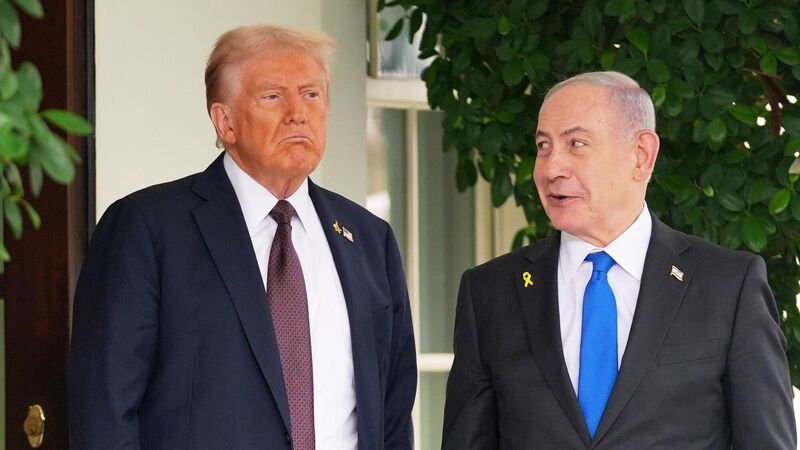Two years on from the October 7 Hamas terror attack, Israel is a pariah state

President Donald Trump, left, greets Israeli prime minister Benjamin Netanyahu at the White House last Monday. Picture: AP /Evan Vucci
Two years on, are the gloves finally coming off?
Tomorrow is the second anniversary of the October 7 Hamas terror attack in which 1,200 Israelis were murdered. In the two years since, Gaza has been virtually destroyed, and 66,000 Palestinians have been killed in a relentless Israeli military assault.
















